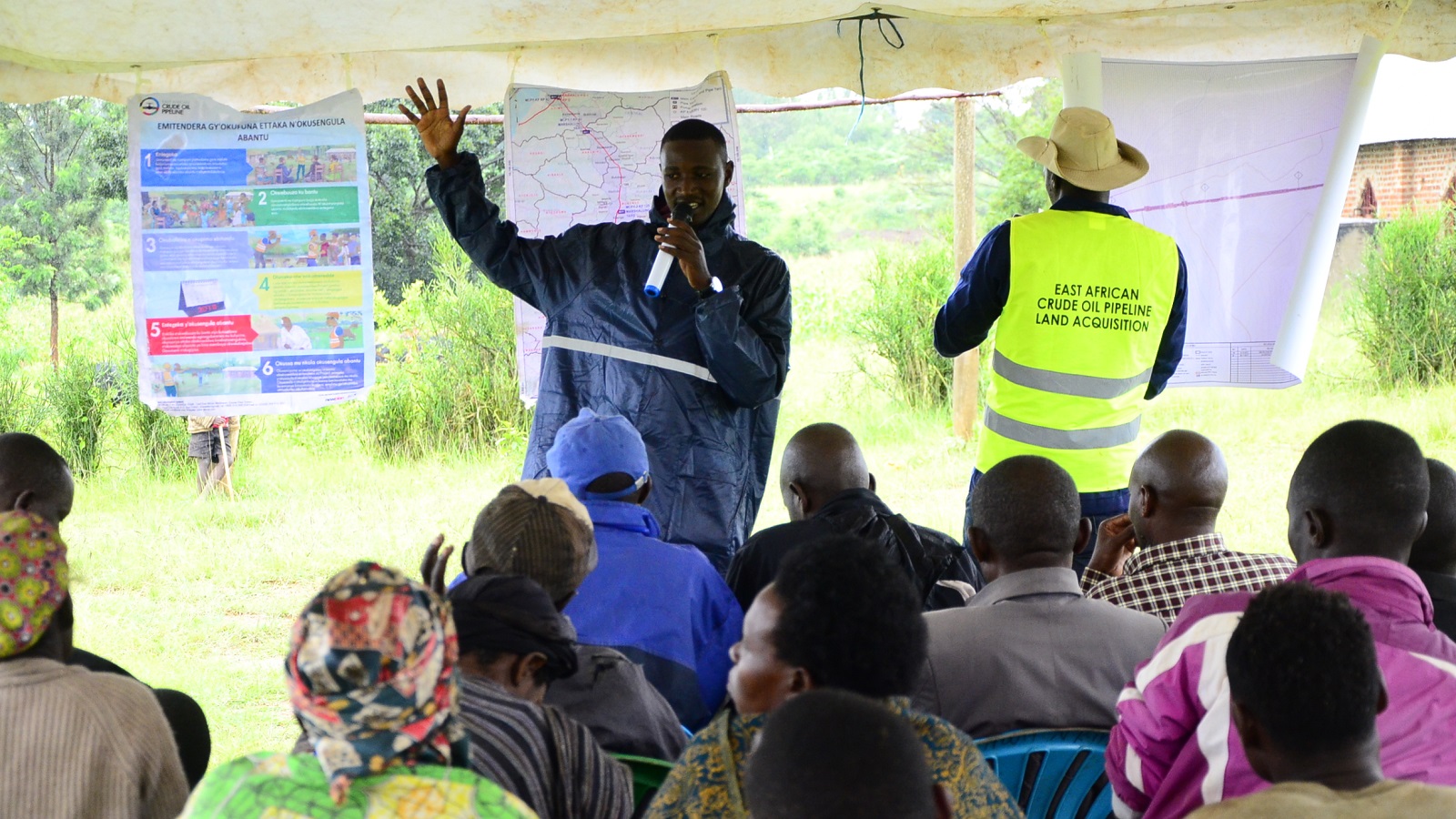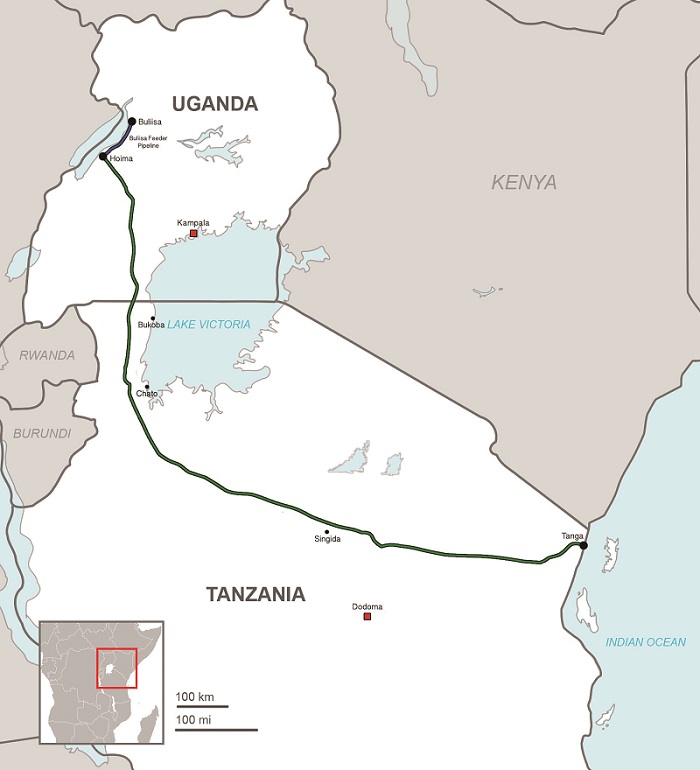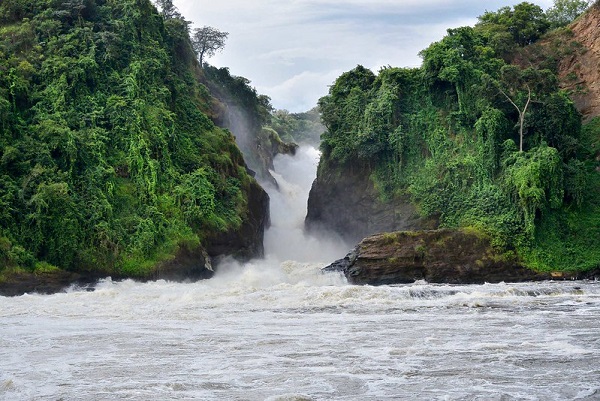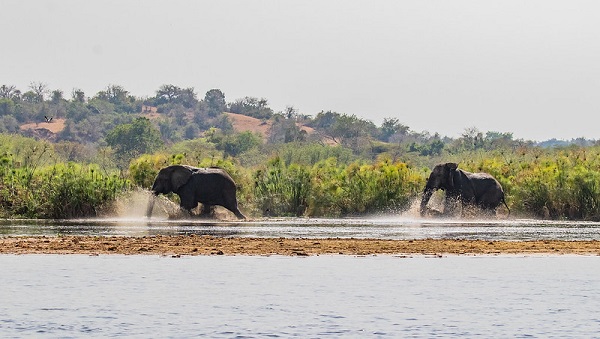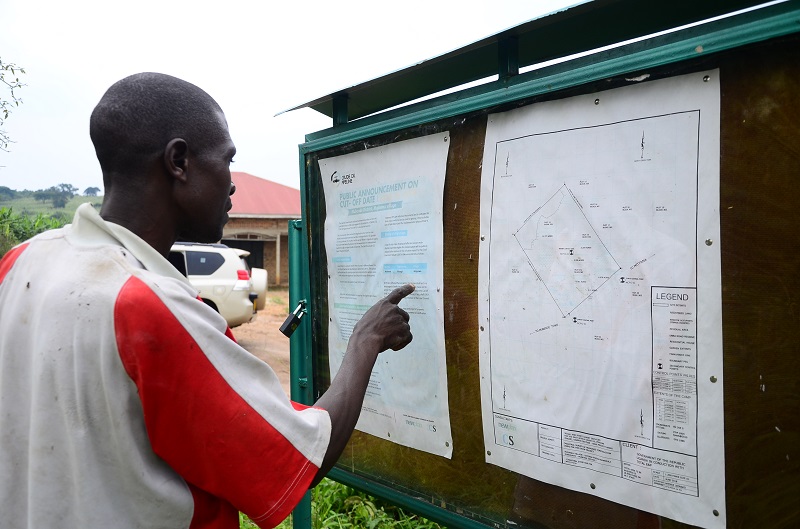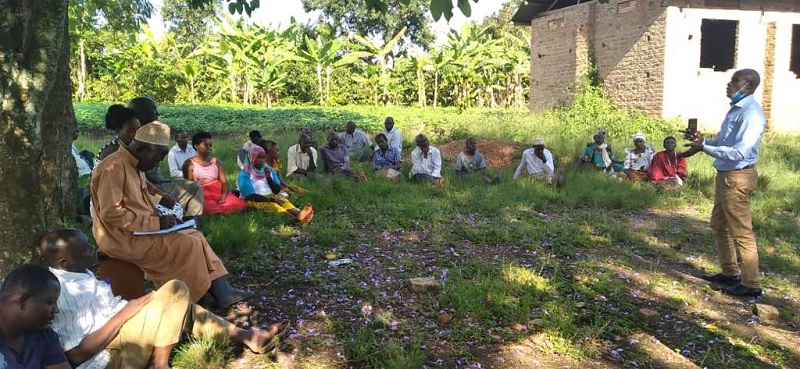The East African pipeline would allow Total & CNOOC to export Ugandan oil, kickstarting the country's production ambition
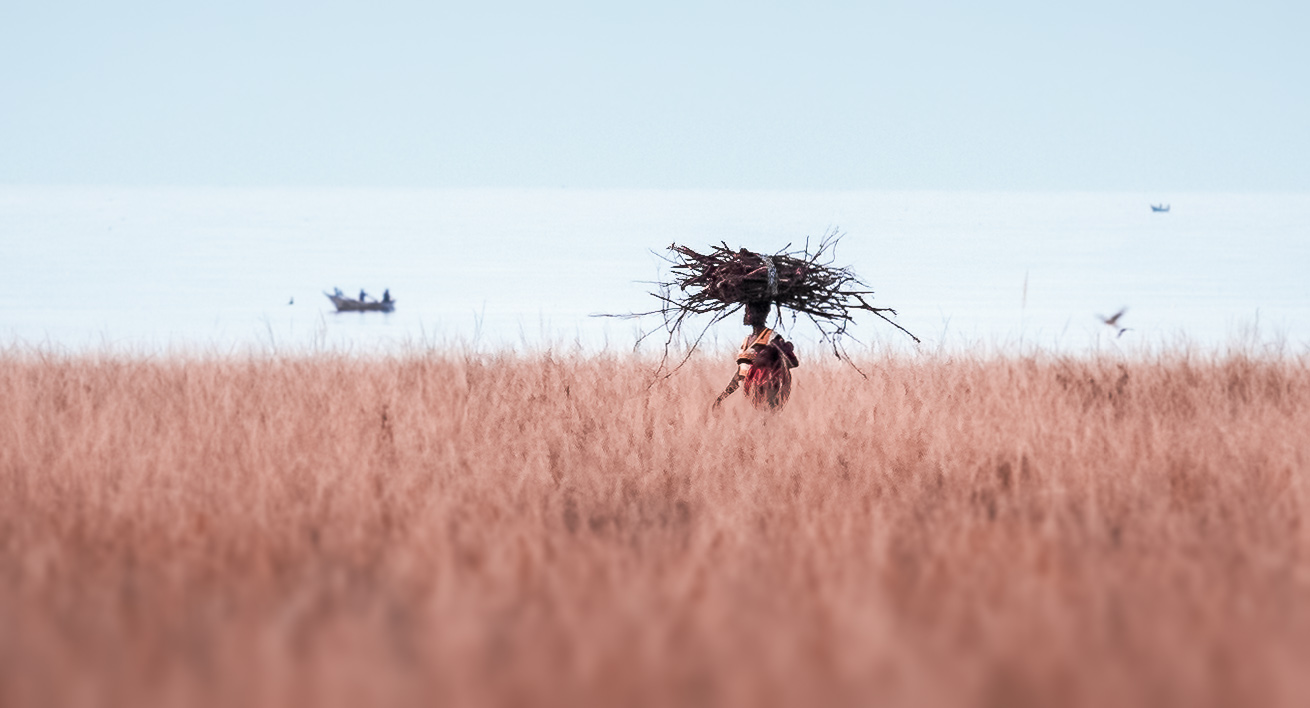
Plans by Total to exploit and export Ugandan oil through a 1,443 kilometre pipeline traversing east Africa to the Tanzanian coast are hanging in the balance as investors are under growing pressure to move away from fossil fuels.
Nearly 15 years after president Yoweri Museveni promised to use oil revenues to propel Uganda’s economic development, the prospect of oil exploitation hinges on Total raising $2.5 billion in international finance to support the construction of the pipeline.
The project is Total’s latest gamble on the African continent after securing funding to exploit methane gas reserves in an area of northern Mozambique gripped by a violent Islamic insurgency. But only months after the oil giant pulled off a $14.9 billion package of loans for its Mozambique venture, the tide is turning in the international finance space.
Institutional and private investors are increasingly moving away from banking on coal, oil and gas. Export credit agencies in Europe and the UK are reviewing their policies in line with increased climate ambition at home.
Campaigners are furiously lobbying international banks to stifle funding support. More than a million people signed a global petition against the project last year.
“This project is going to destroy our social and environmental fabric,” Dickens Kamugisha, head of Uganda-based Africa Institute for Energy Governance (Afiego), tells Climate Home News. “Nearly 100% of Ugandans are dependent on nature. If activities that destroy nature [are carried out], you will have destroyed us.”
A final investment decision is now expected by the end of March. Total’s CEO Patrick Pouyanné is tipped to fly to Uganda on Tuesday to try and seal the deal.
David Pred, executive director of NGO Inclusive Development International, is hopeful the campaign will succeed in discouraging banks from issuing debt finance. “They are under unprecedented public scrutiny for their role in financing the climate crisis,” he says.
“The tide has turned against public and private finance of new fossil fuel projects and this pipeline will become a poster child for climate recklessness if it moves forward. I suspect that any bank or export credit agency that cares about its reputation is going to want to steer clear.”
Officials from the Eacop pipeline team hold a meeting with villagers on the pipeline's route (Photo: Dominic Bukenya)
An estimated 1.7 billion barrels of recoverable oil have been discovered in the basin of Lake Albert, on the border between Uganda and the Democratic Republic of Congo.
Under current plans, oil extraction will take place at two fields operated by Total and China’s state-owned oil company CNOOC, in partnership.
The East African Crude Oil Pipeline (Eacop) will then channel 216,000 barrels of heavy crude oil per day from Uganda’s oil fields to the port of Tanga, Tanzania, across environmentally sensitive areas.
If completed, it will be the longest heated crude oil pipeline in the world. Because of its low sulphur content, the oil will require heating above 50C to flow.
Heating stations and a high voltage line to supply power are being planned alongside the pipeline, which is to be buried for safety reasons. Plans for a refinery are also under way.
The proposed route for the East African Crude Oil Pipeline (Credit: Sputink/Wikimedia Commons)
When burned, the oil transported by the pipeline will emit 33 million tonnes of CO2 a year, according to NGOs’ calculations. That’s more than Uganda and Tanzania’s emissions combined.
Campaigners have warned the project poises “unacceptable” climate harm and threatens water sources and 2,000 square kilometres of protected wildlife habitats crucial to preserving elephants, lions and chimpanzees.
Ten oil wells are planned in Uganda’s protected Murchison Falls National Park.
Total says it is voluntarily restricting its activities in the park to 1% of its area, despite permits covering 10% of the protected area. It says it will support a 50% increase in the number of rangers, the reintroduction of the the black rhinoceros and the protection of chimpanzees.
The oil will then be channeled through a network of pipes to feeder pipelines, some passing under the river Nile and encroaching on the Bugoma Forest Reserve.
The main route runs through a number of sensitive biodiversity areas, including the Lake Victoria basin, which supports 40 million people for water and food, and wetlands of designated international importance.
Total says reviews have been carried out to ensure “social and environmental best practices” and comply with International Finance Corporation standards.
The company has committed to produce “a net positive impact on biodiversity” by defining action plans with authorities in Uganda and Tanzania.
Murchison Falls in western Uganda (Photo: Rod Waddington/Flickr)
Elephants in Murchison Falls National Park (Photo: David Larson/Flickr)
Thousands of people are expected to be affected by the pipeline, which is to run through hundreds of villages and requires the acquisition of 6,400 hectares of land. Total says 723 households are facing displacement.
Displaced people will be given the choice between a new house or monetary compensation, which needs to be finalised by national governments.
While nearly 80% of the pipeline is to be installed in Tanzania, president John Magufuli’s crackdown on dissent since his election in 2016 silenced any debate on the project.
“When Magufuli came to power in 2016, there was still some remain of a civic debate. But that debate has completely gone under the radar,” Thabit Jacob, a Tanzanian researcher in extractive and energy resources at Roskilde University, Denmark, told Climate Home News.
“While the debate in Uganda has been lively, the situation for civil society in Tanzania has been much harder, with tougher restrictions on freedom of speech.”
Magufuli, who denied the risks posed by Covid-19, died on Wednesday. According to the country’s constitution, vice president Samia Suluhu Hassan will be sworn in as president and serve the remainder of Magufuli’s five-year team, which began last year.
In Uganda, since mapping for the 30-meter wide pipeline corridor began in 2017, those whose land crossed the pipeline’s right-of-way were told to suspend any permanent changes to the land pending compensation and the project being greenlighted.
Nearly five years on, compensation hasn’t been paid and prohibition of some land use changes remain in place. In villages, where people depend largely on subsistence agriculture and cattle grazing, frustration is rising.
In the village of Kanoni, Rakai district, less than 30 kilometres from the Tanzanian border, David Magara, fears being cheated.
“If they… consider the compensation rates that they finalised two years ago we will make a big loss,” he tells Climate Home News.
Teopista Namweruka, whose land is also crossed by the pipeline corridor, says she was unable to sell part of her property to pay for treatment for her ill son.
“My son was bed-ridden and the only hope was selling off part of my plantation to settle the hospital bills,” she says. But buyers were “scared away” when they found out the land was located on the pipeline’s route.
Charles Muliira, a chair of the local county council, says local authorities have not heard anything about the project for months, leaving those affected wondering if their compensation will ever materialise. “As local leaders we need to be consulted again,” he says.
Further north, in the district of Kyotera, the frustration is shared. James Kiyengo doubts government promises that the pipeline will bring employment to local people if adequate training isn’t provided. “If residents along the pipeline corridor don’t [have the necessary qualifications] then it will leave behind a trail of misery,” he says.
A man whose land is on the pipeline route looks at project information in the district of Mubende in central Uganda (Photo: Dominic Bukenya)
Over the past year, international campaigners have targeted their opposition to the project at financial institutions.
An open letter signed by 263 environmental groups calls on 25 banks not to finance the pipeline. The letter was sent earlier this month to the chief executives of South Africa’s Standard Bank Group, the Industrial & Commercial Bank of China and Japan’s Sumitomo Mitsui Banking Corporation, which have been acting as advisors to Total and CNOOC.
The project, they write, is “incompatible” with the Paris climate agreement goals and “manifestly irresponsible” at a time of intensifying climate impacts.
“Any bank that chooses to finance the pipeline in the face of this opposition will show itself to be among the most irresponsible in the industry,” says Ryan Brightwell, researcher at Banktrack.
A handful of banks have publicly distanced themselves from the project. Barclays and Credit Suisse have ruled out supporting Eacop. The African Development Bank says the pipeline is not part of its lending programme and it is committed to renewable energy.
The United Overseas Bank says its policy precludes it from backing projects that threaten wetlands of international importance and critical natural habitats. South Africa’s Standard Bank says it is waiting on a full social and environmental assessment before making a decision.
Pred, of Inclusive Development International, says it would be a significant blow to the project if Standard Bank was to walk away.
“Any credible assessment would find that this project is too risky for the millions of people whose water resources it would jeopardise and for our rapidly warming climate, which simply cannot afford another massive oil project,” he says.
UK Export Finance (UKEF) has been approached for support. A UK policy to end overseas financing of fossil fuel announced in December is yet to come into force, with no dates set for implementation. In the meantime, UKEF continues to consider applications for oil and gas support.
In January 2019, UKEF held an event for businesses to consider entering the project’s supply chain. Host to this year’s Cop26 climate talks, the UK is already supporting the construction of an international airport in the oil region. In 2017, the €270 million ($321m) loan was its largest ever to an African government.
The French, German and Italian export credit agencies have received preliminary inquiries to consider the project.
Support from European credit agencies would be a show of “double standards”, says Afiego’s Kamugisha, calling on the one hand for climate ambition while supporting polluting projects overseas.
“It would be very clear that what they say is opposite to what they do. And that won’t be good for the world.”
A meeting held by NGO Afiego in the district Kyotera, Uganda, in 2020, where people affected by the project are still waiting for compensation (Photo: Afiego)
Since oil prices nosedived and oil demand slumped at the start of the novel coronavirus pandemic, the economic viability of the project has been called into question.
Oil demand is set to rise to 2026 but stronger government policies to support clean energy could bring a peak much sooner, according to the International Energy Agency.
Analysis by the Climate Policy Institute found that by the end of 2020, the value of Uganda’s oil reserves had fallen by more than $40 billion – or around 70% of its estimated value in 2013.
If effective action is taken internationally to hold global warming “well below 2C” – the goal of the Paris Agreement – the value of those reserves could drop 88% compared to seven years ago, researchers said.
Unless Total and CNOOC renegotiate the terms of the project, the economic case for investment is weak, the report concluded. Total has already committed considerable resources, buying out the shares of oil company’s Tullow for $575m last year.
In a statement last week, Total’s CEO Pouyanné acknowledged the high social and environmental stakes of the project, promising to act responsibly. “We are mobilizing substantial resources to ensure that these projects are carried out in an exemplary manner and create value for the people in both countries,” he said.
Uganda’s oil industry is “rallying” ahead of the project being greenlit, says Emmanuel Mugarura, executive officer of the Association of Uganda Oil and Gas Providers.
In private, industry insiders say years of delays have knocked confidence in the plans going ahead, Jeff Mbanga, a communication consultant for oil and gas companies in Uganda, tells Climate Home News.
Held a meeting with His Excellency John Pombe Magufuli in Chato, Tanzania, we discussed a number of issues of bilateral interest to our countries. Importantly, we discussed issues around the East Africa Crude Oil Pipeline (EACOP) project. pic.twitter.com/7TzbOtvwEL
— Yoweri K Museveni (@KagutaMuseveni) September 13, 2020
If the project is cancelled, it will not be for lack of support from the Ugandan and Tanzanian governments.
At a ceremony in June 2017 to lay the project’s foundation stone, president Museveni revealed Tanzania had granted “numerous concessions” to Uganda, including exemption of a transit fee, corporate income tax and VAT on the pipeline, that allowed the project to be economically viable.
Jacob, of Roskilde University, says the Eacop pipeline could be the beginning of a host of extractive deals between the two countries.
Museveni’s manifesto for January’s election included plans to import Tanzanian coal to support the production of liquid steel. An LNG pipeline from Tanzania to Uganda is also being planned to supply the iron and steel industry.
Whether these plans go ahead will “depend on whether rich countries and companies are willing to invest in fossil fuels in Uganda and the east African region,” says Kamugisha. He hopes they will back a cleaner path. “We need to be part of the global community that is fighting against climate change and investing in the energy transition.”


